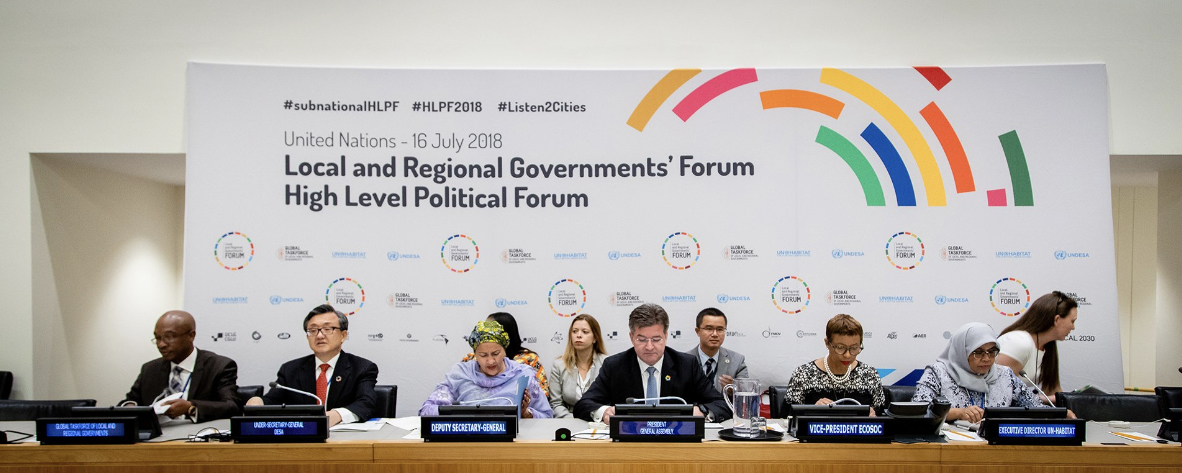The regions take positions at the UN HLPF

The regions and regional organisations took an active part in the High-Level Political Forum held in New York from the 9th to 18th of July. The HLPF (https://sustainabledevelopment.un.org/hlpf/2018) is the platform created by the United Nations to monitor the 2030 Agenda. This is the moment when the central states report on the implementation of the Sustainable Development Goals, a space in which -in recent years- local and regional governments have been taking positions.
On the 13th of July, nrg4SD organised a side-event with the OECD entitled "Localizing the SDGs: regional governments paving the way". According to nrg4SD's Secretary General Natalia Vera, the side-event was an opportunity to strengthen the international coalition of actors in favour of involving the regions in the debate on the SDG's. The event was attended by the regional governments of Flanders, Catalonia, the Basque Country, Lombardy, Paraná, South Denmark and the Argentine province of Cordoba, with the support of the CPMR, ORU Fogar and UNDP Art. It was the occasion to cross-check the contents of the OECD document "Territorial Approach to SDGs", which encourages the central states to engage with the regions, with the nrg4SD report "Regional governments paving the way", elaborated with the Strathcly University of Glasgow, and which points out that the SDGs can be the best and most propitious framework for territorial development policies.
Some of the conclusions of the nrg4SD report deserve particular attention, which besides mapping the work of the regions in the implementation of the 2030 Agenda and identifying experiences in this field, point out that the exercise of implementing the SDGs helps to structure regional governments and new governance. Thus, the report noted the different responses to implementation, as well as the ambition of some regional governments in implementing the agenda. It was noted that, far from the frequent conditioning of electoral mandates, implementation was seen as a process of long projection. There was also a lack of financial resources, as well as a general lack of indicators to measure implementation. The report ended by recommending the regions to have partners, such as the academia, the economic sectors, NGOs, as well as to participate in international networks such as nrg4SD or ORU Fogar.
On the 16th of July, the Local and Regional Governments Forum was held to present the framework for the implementation of the SGDs, paying special attention to the fact that in the next decade they will continue to move from the countryside to the city. The Forum noted that the number of regions of the world participating in the National Voluntary Reviews continued to grow in 2018. This year 48 countries reported local and regional actions in their respective reports. It was noted, however, that there is still a long way to go and a commitment was made to continue working so that in 2019 many more regions will be involved in the 2019 Reviews. At the Forum, ORU Fogar was represented by nrg4Sd, the President of Gossas (Senegal), Adama Diallo, and Marian Elorza, Secretary General for External Action of the Basque Government.








































































